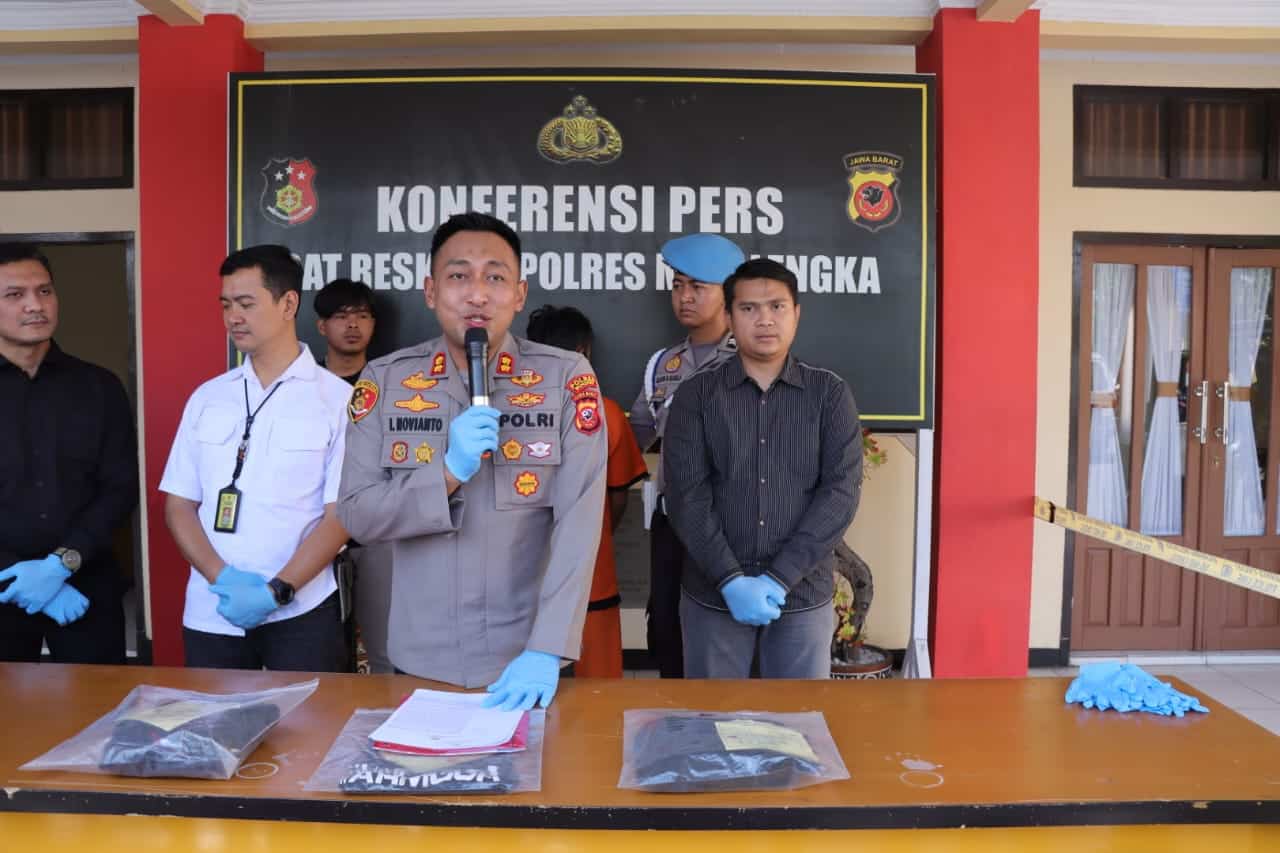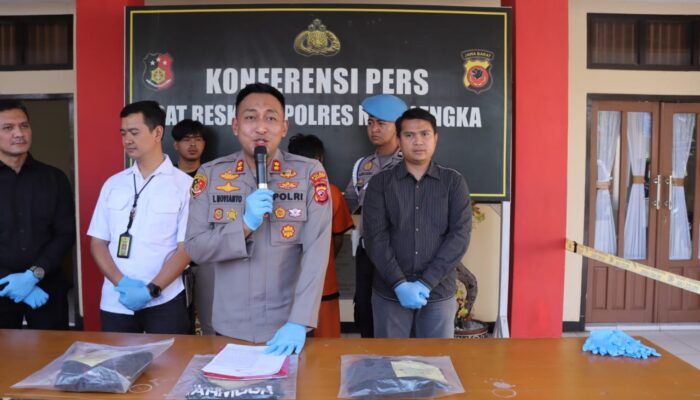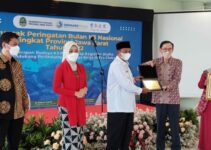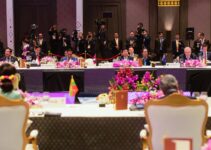Peran Media Dalam Pilkada Majalengka 2024 sets the stage for this enthralling narrative, offering readers a glimpse into a story that is rich in detail and brimming with originality from the outset. The 2024 Majalengka Regional Election will be a crucial event, and the role of media in shaping public opinion and influencing voter behavior will be paramount.
There are differences between the voting equipment used in the Pilkada Majalengka and the Presidential election. You can learn more about the differences in voting equipment between the Pilkada Majalengka and the Presidential election to gain a better understanding of the electoral process.
From traditional media outlets like television, radio, and newspapers to the ever-expanding realm of social media platforms, the media landscape is a complex and dynamic force.
This analysis delves into the intricate ways in which media coverage can impact the election, exploring how it influences voter sentiment, campaign strategies, and the overall political discourse. We will examine the potential for misinformation and disinformation to spread through various media channels, as well as the ethical considerations that journalists face in covering such a significant event.
The Pilkada Majalengka 2024 will be held simultaneously across the region. To learn more about the upcoming election, explore information about Pilkada Majalengka Serentak 2024 and get involved in the democratic process.
The Role of Media in the 2024 Majalengka Regional Election
The 2024 Majalengka Regional Election will be a crucial event in shaping the political landscape of the region. Media, as a powerful tool of communication, will play a significant role in informing voters, shaping public opinion, and influencing the outcome of the election.
This article will delve into the various facets of media’s role in this election, analyzing its impact on voter sentiment, campaign strategies, and the overall electoral process.
Are you curious about the differences between AirTags and Android devices in 2024? Explore the comparison by reading about AirTag Vs Android 2024 to understand the pros and cons of each.
Influence of Traditional Media
Traditional media outlets, including television, radio, and newspapers, continue to hold significant influence over voter sentiment and information dissemination. Their reach extends to a broad audience, particularly in rural areas where internet access may be limited.
- Television broadcasts, with their visual and audio appeal, can effectively convey candidates’ messages and personalities to a large audience.
- Radio programs, particularly local stations, provide a platform for candidates to connect with voters through interviews, debates, and campaign advertisements.
- Newspapers, both print and online, serve as a source of in-depth information and analysis, providing voters with comprehensive coverage of election issues and candidate positions.
Impact of Social Media
Social media platforms like Facebook, Twitter, and Instagram have become integral to modern political campaigns. They offer candidates a direct channel to connect with voters, engage in dialogue, and disseminate their messages.
- Candidates leverage social media to target specific demographics, tailor their messages, and build online communities.
- Social media allows for real-time interaction with voters, facilitating Q&A sessions, live streams, and online polls.
- Social media platforms serve as a platform for viral content, allowing candidates to reach a wider audience through shared posts and videos.
Online News Portals and Blogs, Peran Media Dalam Pilkada Majalengka 2024
Online news portals and blogs provide alternative perspectives and in-depth coverage of the election, often focusing on specific issues or candidate positions.
The upcoming Pilkada Majalengka 2024 will be influenced by social media in many ways. To understand the role of social media in this election, you can read more about the role of social media in the Pilkada Majalengka 2024 here.
It’s a crucial aspect of modern elections.
- These platforms offer a diverse range of voices, allowing for critical analysis and debate on election-related matters.
- Online news portals and blogs can reach a younger, more tech-savvy audience, influencing their opinions and information consumption.
- They play a crucial role in disseminating information quickly and efficiently, providing voters with real-time updates and analysis.
Misinformation and Disinformation
The rapid spread of information through various media channels, particularly social media, poses a significant risk for the spread of misinformation and disinformation.
- False or misleading information can influence voter perceptions, potentially impacting their voting decisions.
- Social media algorithms can contribute to the spread of misinformation by promoting content based on user engagement and click-through rates.
- It is crucial for media outlets and voters to be vigilant in identifying and verifying information, particularly from unverified sources.
Media Coverage and Candidate Strategies
Media coverage plays a crucial role in shaping voter perceptions of candidates and their platforms. Candidates employ various strategies to leverage media to their advantage, aiming to maximize positive coverage and minimize negative publicity.
The Israel-Hamas war in October 2024 is a complex situation with far-reaching consequences. To understand the long-term impact, read more about the long-term consequences of the Israel-Hamas War in October 2024.
Media Coverage Comparison
The media coverage received by different candidates can vary significantly, depending on factors such as their political experience, campaign strategies, and the level of public interest in their candidacy.
- Incumbent candidates often benefit from greater media attention due to their existing visibility and access to resources.
- Challenger candidates may need to work harder to secure media coverage and gain public recognition.
- Media coverage can be influenced by factors such as candidate endorsements, campaign events, and public controversies.
Candidate Media Strategies
Candidates employ various media strategies to communicate their platforms and connect with voters.
- Press conferences and interviews provide opportunities for candidates to articulate their positions on key issues.
- Campaign advertisements, both traditional and online, allow candidates to reach a wide audience with targeted messages.
- Social media campaigns, including live streams, Q&A sessions, and online polls, enable direct engagement with voters.
Key Themes and Narratives
Media coverage of the election often revolves around key themes and narratives that emerge from the campaign discourse.
The security of voting equipment is crucial for a fair and transparent election. To address concerns about the Pilkada Majalengka, you can find out whether the voting equipment in the Pilkada Majalengka is secure.
- Economic issues, such as job creation, poverty alleviation, and infrastructure development, are often central to campaign narratives.
- Social issues, including education, healthcare, and environmental protection, also receive significant media attention.
- Political scandals and controversies can dominate media coverage, potentially shaping voter perceptions of candidates.
Reaching Specific Voter Demographics
Candidates leverage different media platforms to reach specific voter demographics.
- Traditional media outlets, such as television and radio, remain effective for reaching older voters.
- Social media platforms are particularly effective for engaging younger voters and those who are active online.
- Targeted advertising campaigns can be used to reach specific groups based on factors such as age, location, and interests.
The Impact of Media on Voter Behavior
Media plays a significant role in influencing voter turnout and candidate preference. Its coverage can shape voter perceptions, influence their decision-making, and ultimately impact the outcome of the election.
Influence on Voter Turnout
Media coverage can influence voter turnout by raising awareness about the election, highlighting key issues, and promoting civic engagement.
Get ready for the excitement of the NFL season! You can find out about the NFL Week 4 schedule for 2024 and see which teams are playing.
- Negative media coverage can discourage voters from participating, while positive coverage can motivate them to cast their ballots.
- Media campaigns that emphasize the importance of voting and highlight the impact of elections can encourage voter participation.
Shaping Voter Perceptions
Media coverage can shape voter perceptions of candidates and their policies.
Looking forward to the latest phones? You can find out about upcoming phones in the USA for 2024 and see what’s on the horizon for mobile technology.
- Positive media coverage can enhance a candidate’s image and increase their credibility.
- Negative media coverage can damage a candidate’s reputation and undermine their support.
- Media framing and bias can influence how voters interpret information and form their opinions.
Media Framing and Bias
Media framing, the way in which information is presented, can influence voter decision-making.
Want to know when the lunar eclipse will be visible in your area? Check out this helpful resource to find out what time will the lunar eclipse be visible in your location. It’s a great tool for planning your viewing experience.
- Framing can highlight certain aspects of an issue while downplaying others, shaping voter perceptions.
- Media bias, whether intentional or unintentional, can also influence voter perceptions and lead to distorted views of candidates and their policies.
- It is important for voters to be aware of potential media bias and to seek out diverse sources of information.
Shaping Public Discourse
Media coverage can shape public discourse and influence the electoral landscape.
- Media reports on key issues and candidate positions can set the agenda for public debate.
- Media coverage can amplify certain voices and perspectives, while silencing others.
- Social media platforms, in particular, can contribute to the spread of opinions and influence the direction of public discourse.
Ethical Considerations in Media Coverage
Media outlets face ethical challenges during elections, balancing their role as information providers with the need to maintain objectivity, accuracy, and responsible reporting.
If you’re facing the issue of your Android device not showing up in Android Studio, you’re not alone. Find helpful troubleshooting steps to resolve this issue by reading about Android Device Not Showing On Android Studio 2024.
Journalistic Objectivity and Accuracy
Maintaining journalistic objectivity and accuracy is crucial for ensuring fair and unbiased reporting of election news.
Don’t miss out on the October 2024 eclipse! Texas is a prime location for viewing the celestial event. Find out about October 2024 eclipse viewing events in Texas to make sure you’re ready.
- Media outlets should strive to present information without bias or distortion, providing a balanced and comprehensive picture of the election.
- Fact-checking and verification are essential to prevent the spread of misinformation and disinformation.
Promoting Responsible Political Discourse
Media outlets have a responsibility to promote responsible political discourse and combat misinformation.
- They should provide platforms for diverse perspectives and encourage respectful debate on election-related issues.
- Media outlets should actively address and debunk false or misleading information that circulates during the election.
Consequences of Biased Coverage
Biased or misleading media coverage can have significant consequences for the electoral process.
Want to know when the solar eclipse will happen in October 2024? Find out what time will the solar eclipse be in October 2024 and make sure you’re ready to witness this incredible event.
- It can undermine public trust in the media and erode confidence in the election process.
- Biased coverage can influence voter perceptions and potentially lead to unfair outcomes.
- It is essential for media outlets to uphold ethical standards and prioritize accuracy and objectivity in their reporting.
The Future of Media in Regional Elections
The role of media in shaping political campaigns is constantly evolving. Emerging technologies and platforms are transforming how candidates communicate with voters and how media outlets cover elections.
Don’t miss the October 2024 solar eclipse! You can watch it live online by finding a stream for the solar eclipse in October 2024.
Evolving Role of Media
Media’s role in regional elections is becoming increasingly complex and multifaceted.
- The rise of digital platforms and social media has created new avenues for candidate communication and voter engagement.
- Media outlets are adapting to these changes, incorporating new technologies and strategies to reach audiences and provide comprehensive coverage.
Impact of Emerging Technologies
Emerging technologies are having a profound impact on media coverage and voter engagement.
October 2024 will bring about the Daylight Saving Time change. Stay informed about the schedule by checking out Daylight Saving Time October 2024 schedule to ensure you’re prepared for the time shift.
- Artificial intelligence (AI) is being used to personalize content, target advertising, and analyze voter sentiment.
- Virtual reality (VR) and augmented reality (AR) technologies offer new ways to engage voters and create immersive experiences.
- Blockchain technology can be used to enhance election security and transparency.
Challenges and Opportunities

The future of media in regional elections presents both challenges and opportunities.
- Media outlets face the challenge of navigating the evolving media landscape and adapting to new technologies.
- They also need to address the increasing prevalence of misinformation and disinformation.
- However, emerging technologies also offer opportunities for media outlets to enhance their reach, engagement, and impact.
Media Trends and Implications
| Trend | Implications for the 2024 Majalengka Regional Election ||—|—|| Rise of social media | Increased use of social media platforms for campaign communication and voter engagement. || Growth of online news portals | Increased access to diverse perspectives and in-depth coverage.
|| Spread of misinformation | Increased risk of false or misleading information influencing voter perceptions. || Emerging technologies | Potential for enhanced voter engagement, personalized content, and election security. |
Summary: Peran Media Dalam Pilkada Majalengka 2024
The 2024 Majalengka Regional Election presents a unique opportunity to observe the evolving role of media in shaping political campaigns. As technology continues to advance and new platforms emerge, the media landscape will undoubtedly transform further. Understanding the influence of media and its potential impact on the electoral process is essential for informed and engaged citizens.
By critically analyzing media coverage and recognizing the power of information dissemination, we can navigate the complexities of the election with greater awareness and insight.
Essential FAQs
What are some examples of how media coverage has shaped public discourse in past elections?
Media coverage often shapes public discourse by highlighting certain issues, framing narratives, and setting the agenda for public debate. For example, in past elections, media coverage has influenced public opinion on topics such as economic policy, social issues, and candidate scandals.
How can voters protect themselves from misinformation and disinformation during the election?
Curious about the time change in October 2024? It’s a common question. You can find out how many hours does the clock change in October 2024 and get ready for the adjustment.
Voters can protect themselves from misinformation and disinformation by being critical consumers of information. They should verify information from multiple sources, be wary of sensationalized headlines, and avoid sharing information without fact-checking.
What are some of the ethical challenges faced by media outlets during elections?
Media outlets face ethical challenges such as maintaining objectivity, avoiding bias, ensuring accuracy, and protecting the privacy of individuals. They must balance the need to inform the public with the responsibility to avoid spreading misinformation or harming individuals.









